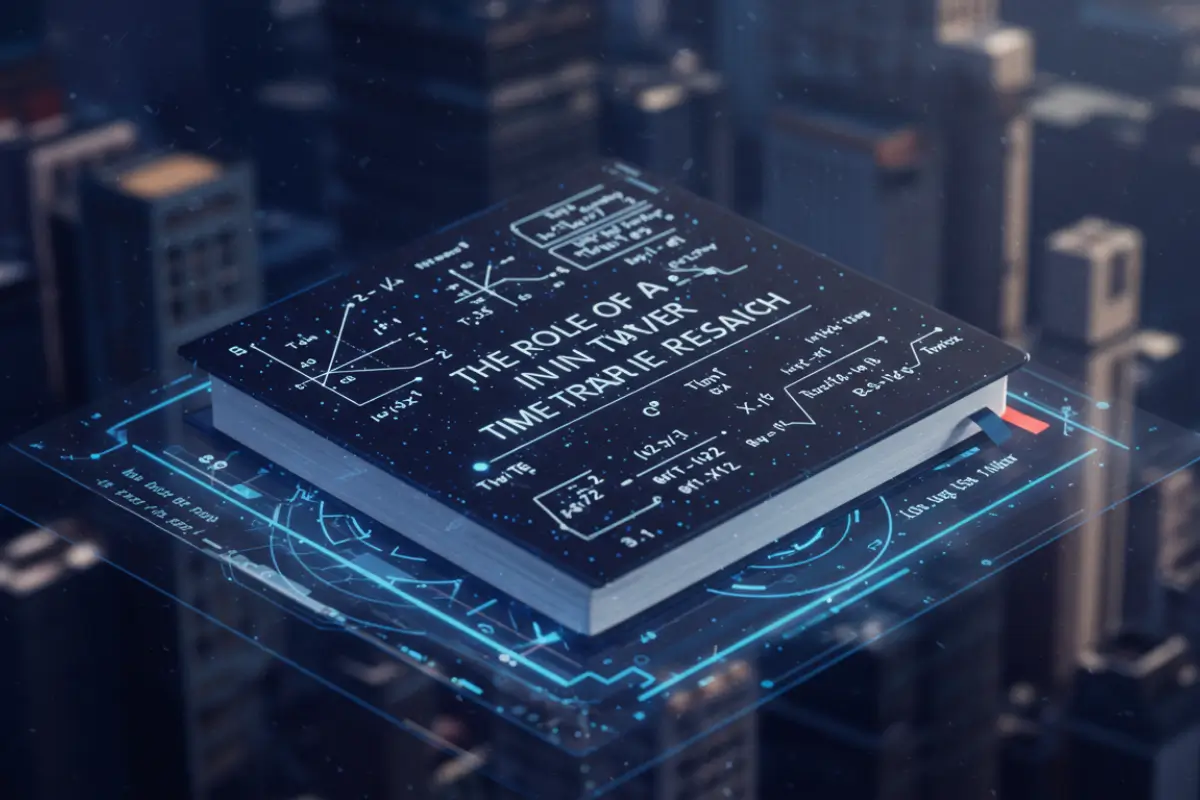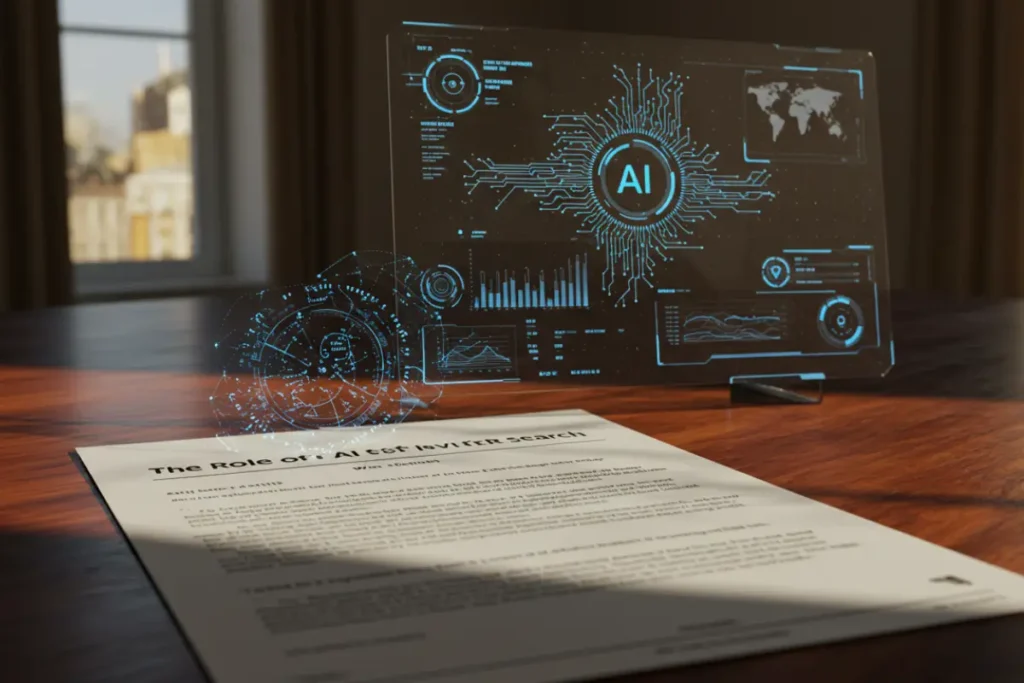The Role of AI in Time Travel Research
- April 11, 2025
- 0
Good morning everyone, let’s talk about time travel, and combine it with another fiction (at least a few years ago) AI. Well, grab a snack and sit back
Good morning everyone, let’s talk about time travel, and combine it with another fiction (at least a few years ago) AI. Well, grab a snack and sit back

Good morning everyone, let’s talk about time travel, and combine it with another fiction (at least a few years ago) AI.
Well, grab a snack and sit back because what I’m about to share with you is nothing short of mind-blowing.
In this article, I’m going into how artificial intelligence (AI) is shaping, accelerating, and sometimes even questioning the future of time travel research. Yes, time travel, the dream of many scientists, philosophers, and movie geeks like me. 🚀
Artificial Intelligence has already transformed fields like medicine, gaming, and space exploration—and now it’s poking its curious circuits into one of the most mysterious areas of all: time manipulation.
If you love the idea of bending time or exploring multiverses, I promise this article will take your imagination to another level. 💭
First of all, tell me, do you think we’ll live long enough to see people traveling through time? I don’t think so, but who knows?

Time travel is not just a topic of science fiction anymore. For centuries, humans have been obsessed with the concept of time—how it works, how it flows, and whether or not it can be manipulated.
From H.G. Wells’ “The Time Machine” to Marvel’s Avengers traveling through the Quantum Realm, this idea has lived rent-free in our collective imagination.
But the fascination goes way beyond storytelling. In science, time travel intersects with physics, mathematics, quantum mechanics, and even philosophy.
The Theory of Relativity by Einstein showed us that time is not constant—it’s flexible depending on gravity and speed. That opened the gates to more questions than answers, and now, in 2025, AI is becoming an important player in helping us unlock these mysteries.
Personally, I find the thought of time travel both terrifying and thrilling. Imagine having the chance to correct mistakes from your past or visit the unknown future. But the real question is: can machines help us get there?
Let’s say some of the most widely known theories that scientists and enthusiasts consider when exploring time travel:
These ideas are mind-bending, I know 😅. But now let’s talk about where AI fits into this theoretical jungle.
This is where things get seriously interesting. AI doesn’t just sit and wait for instructions anymore—it learns, adapts, and creates new theories based on complex data. In the case of time travel, researchers are using AI to:
A major player in this field is quantum computing, which works in tandem with AI. You can read more about this dynamic duo in our article: Quantum Computing and AI: A Perfect Match.
With both technologies, scientists are able to analyze absurdly complex problems that no human mind (or even classical computer) could solve.
If you’re still skeptical, I totally get it. But even Stephen Hawking once said: “Time travel might be possible, but it is not practical.” With AI stepping in, who knows if that statement will hold true for much longer?

Now, let’s slow down for a second. With great power comes great responsibility (yeah, Spider-Man said that, but it’s true 😅). AI can help us, but it also raises questions:
As I reflect on this, I honestly feel torn. On one hand, the potential is massive. On the other, we might open doors we’re not ready to walk through. There’s also the risk of AI hallucinations—producing incorrect or fictional scientific data—which could set back research significantly.
To read more about how AI’s judgment can go wrong, check out this informative Wikipedia article on AI hallucinations. Trust me, it’s worth the read!
Some experts believe AI will only assist human researchers. Others are convinced that AI could eventually lead its own time travel theories, bypassing human thought altogether. That’s a scary but exciting idea.
Personally, I think we’re still in the phase where AI is the sidekick, not the superhero. But with how fast it’s learning? That role could flip in no time (pun intended).

So, what’s the final verdict? Are we close to building a real-time machine with AI’s help? Not exactly. But are we closer than ever before? Absolutely.
AI is giving scientists new eyes to see the invisible, and new brains to think the unthinkable. We still have decades—or centuries—to go before time travel becomes real. But without a doubt, AI has pushed us faster and further than we ever imagined.
And if you’re fascinated by all this like I am, don’t stop here. Take a few minutes to explore more futuristic topics on my blog, like AI and the Evolution of Human Consciousness and The Role of AI in Understanding Alien Intelligence. 🧠🛸
In general, this is all we know, the rest is just the scientists who are working on this possibility of time travel.
💬 If you liked this article, leave a comment below telling me where you would travel if time travel became possible! Don’t forget to share it with your friends who love sci-fi and futuristic theories!
👉 Hey! Check out more awesome content like this on our blog Futuristic Intellect 😄